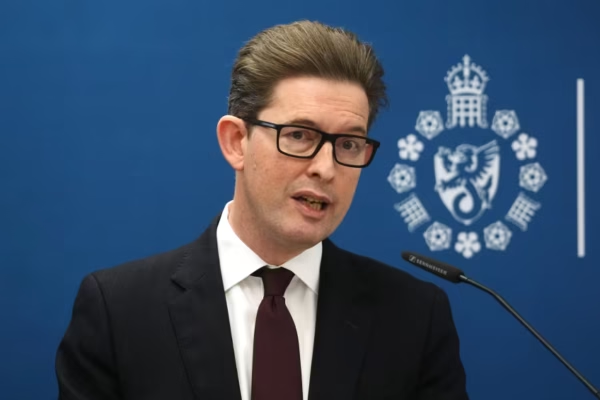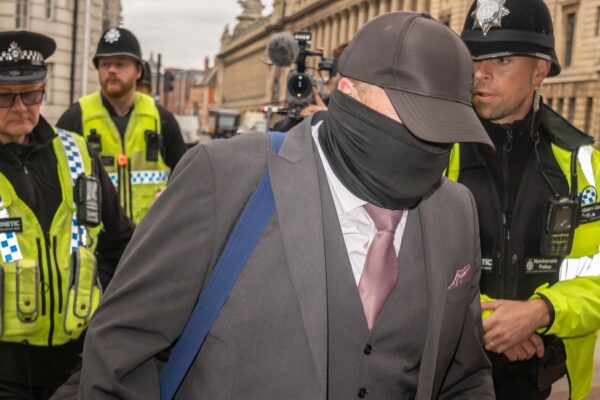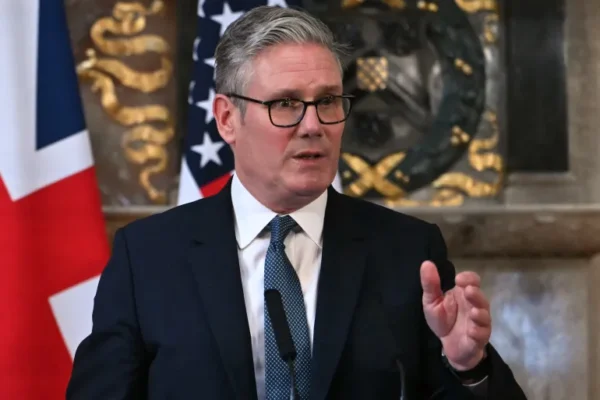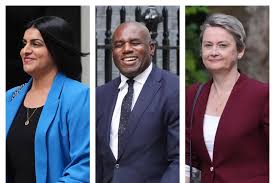
A New Era: UK Faces Rising Threats from State Actors and Terrorists, Says MI5 Chief
The United Kingdom is confronting what security officials describe as an increasingly “hostile world,” marked by growing threats from foreign state actors and terrorist groups. According to MI5 Director General Sir Ken McCallum, the number of suspects under investigation for potentially working for hostile governments has surged by 35% over the past year. Delivering his annual address at Thames House in London on Thursday, McCallum said MI5 is undergoing its “biggest mission shift since 9/11,” as the agency contends with a surge in both espionage and terrorism-related activities. He revealed that MI5 teams are currently handling “near-record volumes of investigations.” The MI5 chief began his remarks by expressing condolences for the two victims of a recent ISIS-linked attack on a Manchester synagogue earlier this month. He described the evolving security landscape as a “new era,” combining threats from extremist ideologies — Islamist, far-right, and others — with an expanding campaign of foreign interference. McCallum highlighted that the UK has faced multiple espionage and sabotage attempts in recent years, including Chinese influence operations targeting Parliament and Russian-backed arson attacks on warehouses supplying Ukraine’s forces. He also disclosed that MI5 thwarted “more than 20 potentially lethal Iran-backed plots” in the last year alone. “State threats are increasing,” McCallum warned. “The number of individuals we’re investigating for involvement in state threat activity has risen by 35% in the last year — and these are people physically present here in the UK.” He identified Russia, China, and Iran as the “dominant trio” driving most state-linked operations, citing activities ranging from surveillance and cyber espionage to acts of physical sabotage. “Some operations involve gathering highly specific targeting information about individuals — the only logical purpose of which is to make it feasible to harm them,” he said. McCallum referenced the conviction earlier this year of Orlin Roussev and five other Bulgarian nationals who were sentenced for running a Russia-linked spy ring in Britain. The group was accused of surveilling journalists, dissidents, and Ukrainian soldiers in Europe on behalf of the Kremlin. Despite these revelations, McCallum stressed that many of Russia’s operations in the UK now rely on “proxies” or freelancers rather than direct intelligence agents. He issued a stark warning: “It’s not a good career move to work for the Russian Intelligence Services in the United Kingdom.” The MI5 chief also touched on the role of emerging technologies, particularly artificial intelligence, in modern espionage and terrorism. He said extremist groups are already attempting to exploit AI for propaganda, weapons research, and reconnaissance, though he cautioned against alarmism. “I am not forecasting Hollywood movie scenarios,” McCallum said. “Artificial intelligence may never ‘mean’ us harm, but it would be reckless to ignore the potential for it to cause harm.” With geopolitical tensions rising and technological innovation transforming the nature of threats, McCallum concluded that Britain’s intelligence community must “adapt faster than its adversaries” to protect national security in what he called “a new and dangerous era.”







